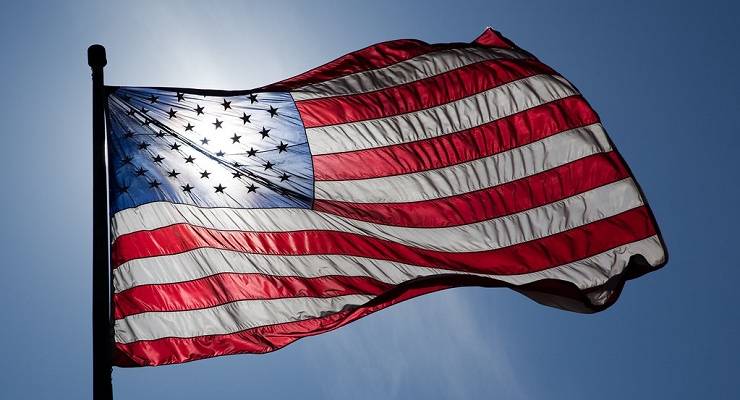
In the biggest week of the Christian calendar, the most seismic news went all but unnoticed. Gallup reported that US church membership fell below 50% for the first time. Having hovered around 70% throughout the 20th century, religious participation plunged over the past two decades in a trend that shows no signs of stopping.
This drop underscores the tectonic shifts at play in America’s social landscape and how these forces are shaping the political battle over the future. One side is dominated by an ageing demographic that still views the United States as a white, Christian nation. The other encompasses a younger constellation of pluralists who believe that skin colour and religious preference should no longer define citizenship and opportunity in the “land of the free”. Both maintain they are the authentic custodians of the country’s ideals.
Onward Christianity
Constitutional separation of church and state notwithstanding, the political influence of Christianity has never been concealed. If anything, it has intensified over time. The pledge of allegiance was amended to insert the words “under God” in 1954. “In God we trust” was adopted as the national motto in 1956, supplanting “E pluribus unum” (“Out of many, one”). The inscription appears on US currency and in schools, courtrooms and on licence plates in many states. The phrase was embossed above the speaker’s chair in the House of Representatives in 1962. In 2011, the house reaffirmed the motto by a 396-9 vote.
Even former president Donald Trump, who preferred to spend his Sundays on a golf course than in a church pew, and could not accurately recite from the Bible, grasped this reality. White evangelicals were his bedrock supporters. He returned their fealty by nakedly avowing religious favouritism and installing activist theocrats throughout the federal judiciary.
But times change.
Aside from the downturn in religious worship, the US has witnessed other dramatic turns over the past 20 years. Half a century after repealing the prohibition against interracial marriage, in 2015 the Supreme Court extended the right to marry to same-sex couples nationwide. In 2011, the US military permitted gay personnel to serve openly. Two years later it lifted the ban on women in combat. Since 2000, 11 additional states have abolished the death penalty, with a further 13 suspending capital punishment. Only five states put condemned prisoners to death in 2020, plus a late flurry of federal executions in the final months of the Trump administration.
Social attitudes moved in other domains, too. Support for legalising marijuana flipped from 31%-63% against in 2000 to 67%-32% in favour in 2019. During the past decade, 16 states made recreational use lawful, with another 15 decriminalising possession. Every state except Idaho and Nebraska now permits use of marijuana’s active ingredient THC for medical purposes.
Probable cause
What’s driving this transformation towards a more tolerant, inclusive culture? Demographic shifts are one cause. Non-Hispanic white Americans fell from three-quarters of the population in 2000 to two-thirds in 2020. This rapid decline is projected to continue, with whites falling below 50% by mid-century. Meanwhile, the share of immigrants has risen to 14%, the highest proportion since the early 20th century. This ratio is forecast to surge in coming decades.
In the same period, the median age of first marriages climbed three years from 27 to 30 for men, and 25 to 28 for women. This is seven years older for both sexes than it was 50 years ago. More people have now cohabited with a partner than married, another first. Online dating, still nascent in 2000, is now the most common method for partners to meet.
Education has also contributed. The share of college graduates rose from 29% to 39% of the population. A quarter of these had completed a masters degree or higher. Right-wing critics accuse “liberal” faculty and universities of indoctrinating students and disparaging conservative beliefs. Their complaints are misplaced. Evidence shows that higher levels of education correlate with increased acceptance and openness to others. This should not shock anyone. Learning has always been the pathway to understanding.
Another factor is the internet, and the technological revolution it has let loose, combining the communications reformation of Gutenberg’s press with the economic metamorphosis of the industrial revolution. The sheer speed and scope of this upheaval is without precedent. It is the dominant innovation of our age, and will continue to remake our world in ways we cannot yet fathom.
We can also trace recent societal developments to an earlier counterculture era, when protest for civil rights and against a disastrous war rocked the US and spread around the world. It was a time of hope and resistance, and backlash and despair. In the aftermath of World War II and the reversion to suburban tedium, baby boomers dared to dream of greater ideals. With the end of segregation, the second wave of women’s rights and the gay liberation movement, they made huge strides.
Boom time
It has become fashionable to blame the boomers for the economic and cultural regression that followed, particularly after Ronald Reagan won the presidency. This is unfair. Albeit the largest cohort of Americans, they were still vastly outnumbered by older generations who were not similarly disposed to embrace radical changes with the same fervour.
Rome wasn’t built in a day. But the seeds of Woodstock, accelerated by revolutionary technology, have finally erupted into full bloom. The ideas and values that shaped the boomers influenced how they raised their children, gen X and the millennials. Then came the zoomers, now transitioning into adulthood. Each generation in turn has become progressively more broadminded than its predecessors, and open to adaptation as needs be amid a revolution.
Fifty years after Woodstock, the US is a different land. A glance at photos, ads or TV shows from that era feels like peering through a looking glass at ancient history. Jim Crow has yielded to a Black president, and now the first female and Black vice-president. Mad Men has succumbed to Me Too. The forces unleashed are far beyond the remit of anybody to contain. There is no return to yesteryear. White Christians will remain prominent in America, but only as part of the new national tapestry.
Do you think the US has changed for the better? Write to letters@crikey.com.au. Please include your full name to be considered for publication in Crikey’s Your Say section.








wouldn’t it be nice, if regular church-goer Biden, pushed for the reinstatement of “E pluribus unum”? – y’know, a return to the old values of the Greatest Generation etc
short of that, he could tweak, “In God we trust” and change it to “In gods we trust” to make it more inclusive
A very optimistic view – but unless the electoral systems change, I don’t hold a lot of hope for significant change. Power is still embedded.
“We are witnessing the slow emergence of a new, more tolerant and more inclusive America.”
What total poppycock ! It’s a disaster Zone
So it is emerging in a disaster zone. That would be consistent with US history.